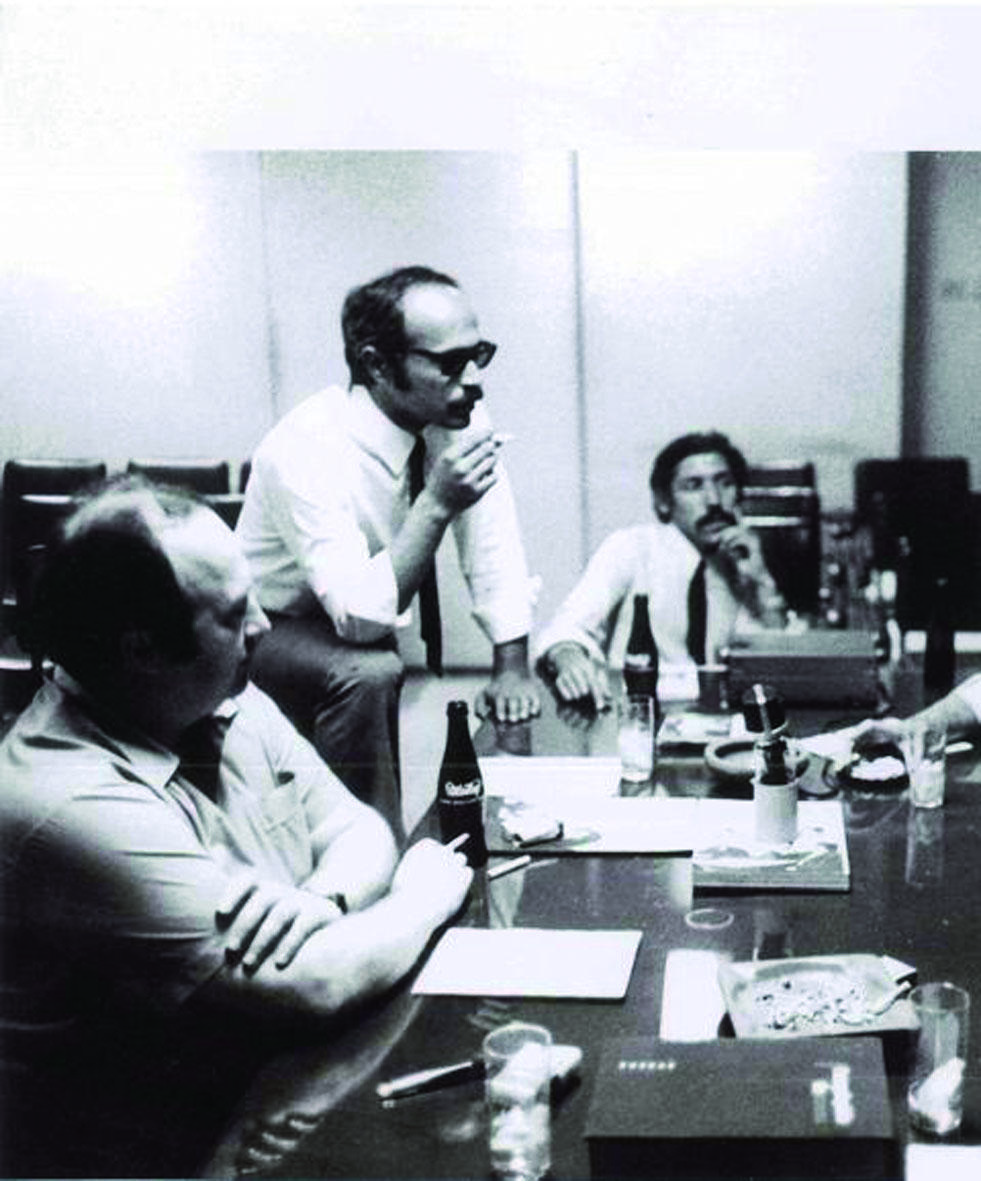Sinematek Association’s legacy lives on
Emrah Güler - ANKARA




Like cinémathèques around the world, the mission of Sinematek was “to research films, as well as film posters, screenplays, documents, photography and books on cinema from Turkey and across the world, collect, archive, preserve and restore them when possible, and make these available.” While, unlike its counterparts across Europe, the association could not succeed much in collecting and preserving, it worked as a glorious cinema club, bringing cinema to the curious masses in as many as 20 cities, with nearly 6,000 members in its heyday.
The cinema clubs popping up across Turkey, thanks to Sinematek, screened classics and rare films with subtitles or simultaneous translations, organized panels, conferences and retrospectives from Luchino Visconti films to the golden age of American comedy. Sinematek also brought guests from around the world, like Henri Langlois, the director of the Cinémathèque Française, who introduced films under “75 Years of French Cinema” in 1972.
The activities and film days of Sinematek and its clubs resembled very much the film festivals of today. In fact, after Sinematek ended, the association’s Cinema Days soon turned into the Istanbul Film Festival, led by Şakir Eczacıbaşı, the late chairman of the Board of Directors of the Istanbul Foundation for Culture and Arts (İKSV) for 16 years. The Istanbul Film Festival ran its 34th edition this year.
‘Desire for a utopian new society’
In his book “Sinematek (Turkish Cinémathèque Association): Cinema and Political Debate,” Hakkı Başgüney defines the decade between 1965 and 1975 as “a period of transformation in Turkish cinema, just like other transformations in theater and literature, as artistic activities were diffused in the public life.”
Başgüney argues that, in that period, “an artistic environment took shape in which political discussions were made possible,” and that “interaction with the public sphere and the desire for a utopian new society were the essential characteristics of this generation.”
“In this period, the intellectuals and youth in Turkey defined themselves in relation to the political and socio-economic problems of their country. This critical consciousness naturally found expression in the cultural sphere,” he said.
In his elaboration of Sinematek, Başgüney cautions over the tendency to pigeonhole the association into a movie theater, an artistic workshop or a gathering of like-minded people. He asserts that Sinematek was a place where “the ideas and expectations of its members on cinema and politics were brought together,” and where “creative endeavors took place in that direction.”
Sinematek, an honorary ‘cinema school’
Last April, Istanbul Film Festival brought together a selected group of names for a special meeting to commemorate Sinematek’s 50th anniversary, as well as the 20th anniversary of the death of Kutlar. Hülya Uçansu, the director of the festival in its first 25 years; journalist and writer Zeynep Oral; writer, film critic and former Sinematek Director Vecdi Sayar; one of the founders of the association, Jak Şalom; and film critic Atilla Dorsay shared with the audience their memories of Kutlar, as well Sinematek’s influence on Turkish cinema.
Şalom talked about the first years of Sinematek, and how the initiative of a handful of people was transformed into an association with branches in four cities, and cinema clubs in 20 cities. “Many university students learned what the world really was through Sinematek,” said Şalom. “Sinematek served very much like a cinema school.”
Sayar talked about his time as the director of Sinematek, how the association served as a political platform for the intellectuals of the period, how they helped in the establishment of a cinema department within the Culture Ministry, and how the association would eventually flourish into the Istanbul Film Festival, which has continued strongly to the present. Speaking about the political and social structure of 1960s Turkey, Dorsay said, “Socially and historically, Turkey was ready for the establishment of Sinematek.”
Kutlar was remembered fondly by the speakers throughout the meeting. “Everyone has a mentor in life. Mine was Onat Kutlar. I have always looked up to him, and followed his footsteps,” Sayar said.
Zeynep Oral added: “He was larger than the sum of his parts. Kutlar was not only a cinephile but all-around cultural savant.”
Sinematek may no longer be around, but its cultural legacy most certainly lives on.
